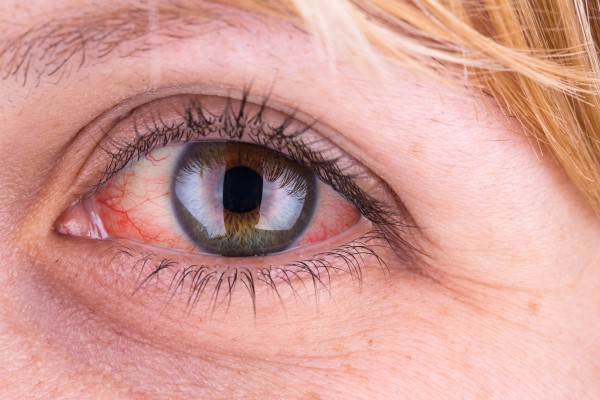Knowing When Emergency Eye Care is Needed

Visual health is an essential part of everyday life. Regular eye appointments, wearing prescription eyeglasses or contacts, and reducing screen time are a few ways that can help optimize healthy eyesight. However, accidents happen where you need immediate eye care.
Fortunately, an experienced emergency optometrist can help you with eye injuries or troubling symptoms. The optometrist can also refer you to a qualified surgeon if they cannot perform a specific treatment. Continue reading to learn more about emergency eye care treatment.
What is considered an eye emergency?
Eye emergencies occur when foreign objects or chemicals are in a patient's eyes or when they experience an eye injury or burn. In addition, those experiencing any swelling, redness, or discomfort in their eyes should seek medical attention. Untreated eye problems can lead to further damage, including partial vision loss and, in severe cases, permanent blindness.
Eye injury symptoms
There are many different types of eye emergencies. Each type of eye emergency has distinct symptoms. These symptoms may include the following:
- Burning, stinging, or pain
- Double or decreased vision
- Eye discharge
- Itching, irritation, or redness
- New or severe headaches
- One eye is moving abnormally
- One eye is bulging or sticking out
Any of these symptoms indicate a medical emergency. A patient should seek professional treatment from an optometrist as soon as possible. Serious complications can happen if the patient attempts only to treat themselves at home.
Types of eye emergencies
Chemical injuries
This type of eye injury occurs after an individual gets burns from chemicals like cleaning products, garden chemicals, or industrial chemicals. It is also possible to sustain chemical burns from aerosols and fumes. While many chemical injuries are minor, alkaline products can permanently damage a patient's cornea.
When patients get chemicals in their eyes, they should flush them for ten to fifteen minutes. Do not cover the affected eye. Seek medical treatment as soon as possible.
Cuts or scratches
When a patient sustains a cut or scratch to their eyeball or eyelid, they need urgent medical attention. To protect the injured area, the patient can apply a loose bandage. However, they should try not to apply any pressure, which can lead to more complications.
Foreign objects
If a patient experiences something getting in their eye, it can lead to eye damage or loss of vision. However, the results will vary depending on the size of the object. If a patient gets something small, such as sand or dust, in their eye or on their eyelid, they should try to blink to see if the object clears, but they should not touch their eye with unwashed hands. Artificial tear drops and cool water can help rinse out the foreign body. If the irritation continues, contact the optometrist right away.
In comparison, a large foreign body that enters the eye at high speed can cause severe and permanent damage. These could be items such as glass, metal, and wood. The patient should seek immediate care and not touch or attempt to remove the object themselves.
Getting a black eye
If something hits a patient's eye, it can cause bleeding under the skin surrounding it, leading to discoloration, also known as a black eye. While a black eye is typically harmless, a sudden injury to the eye can potentially damage the inside of it. Even if the patient can see fine, they should seek medical care to ensure they did not sustain a long-term eye injury.
How an emergency optometrist can help
Eye infection treatment
One of the most common eye infections that optometrists treat daily is pink eye, particularly in school-age children. It is often caused by viral infections, usually accompanied by yellow discharges from the eye. Optometrists can prescribe antibiotics to treat the infection.
Foreign body extraction
If the patient has a small foreign object in their eye and cannot safely remove it, the optometrist can rinse it out with water, wipe it away, or lift it out with a small instrument. In the case of a large foreign object, such as a shard of glass or metal, the optometrist will likely need to consult an experienced eye surgeon to remove the object to avoid further damage. Following a foreign object removal, the optometrist will likely prescribe the patient prophylactic antibiotic drops up to four times a day to prevent infection.
Vision testing
If someone suddenly loses vision quality, they will likely need emergency vision testing to prevent permanent damage. This reduction may be due to a corneal or retinal issue. An optometrist can perform vision tests to diagnose and treat the patient's vision before it worsens.
Call us as soon as possible
If you have an eye injury or are experiencing symptoms with your sight, seek professional care from an optometrist as soon as possible. Delaying emergency eye care treatment can cause further and, sometimes, permanent damage to your eyesight and vision health. Call our office at your earliest convenience so our team can help restore your sight and prevent further issues to your vision.
To learn more about emergency eye care in Dallas and the surrounding area, visit https://www.texasoptical.net or call (214) 771-7333 to see an optometrist as soon as possible.
Check out what others are saying about our services on Yelp: Read our Yelp reviews.
Recent Posts
The selection of eyewear feels significantly easier when the styles and craftsmanship of Versace eyewear enters the conversation, since bold lines and iconic detailing create an instantly recognizable look. Versace represents the intersection of Italian fashion and Greek mythos, blending confident glamour with symbolism through its signature Medusa logo. The brand is widely associated with…
Many people who work in construction or laboratories wear safety glasses to protect their eyes during the day. However, keeping your eyes safe extends beyond hazards in the workplace. There is a wide variety of household chores and hobbies for which you should wear eye protection. When used consistently, safety glasses help create a safer…
Transitions lenses combine style and convenience to support clear vision without switching between regular glasses and sunglasses. While they were often considered unfashionable in days past, times have certainly changed. Today, transition lenses can be fashionable, chic, and a reflection of your personal style. When designing a pair for you, an optometrist will look at…
Dry eye treatment is important when occasional irritation becomes ongoing discomfort that interferes with daily activities. Many individuals experience dryness, burning, or a gritty feeling in the eyes from time to time. However, when symptoms start to affect reading, screen use, or time outdoors, a structured approach to diagnosis and care helps protect comfort and…


